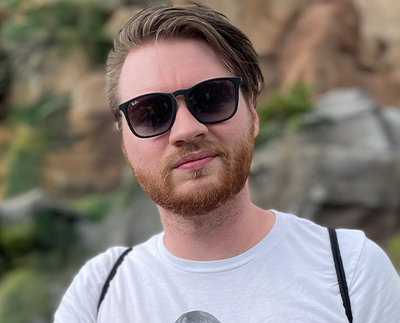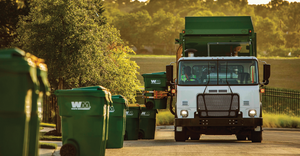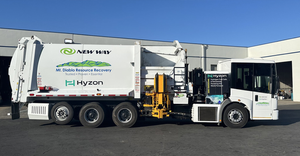Women in Circularity Share Insights on Shaping the Future of Recycling and Sustainability
The Resource Recycling Conference got things started on a dreary Louisville, Ky. Afternoon, just ahead of America Recycles Day. To get things started, the welcome and opening plenary, hosted by Amy Roth, flowed right into a conversation with women making waves in circularity.

The Resource Recycling Conference got things started on a dreary Louisville, Ky. Afternoon, just ahead of America Recycles Day. To get things started, the welcome and opening plenary, hosted by Amy Roth, flowed right into a conversation with women making waves in circularity.
The panel, moderated by MaryEllen Etienne, Associate Director, U.S. Green Building Council and author of the “Women in Circulatory” column for Resource Recycling, brought together four female leaders to share their insights on their career paths, best practices, and emerging trends in sustainability.
Joining Etienne on stage were Crystal Dreisbach, CEO, Upstream; Leslie Lukacs, executive director, Zero Waste Sonoma; Allyson Mitchell, vice president, Sustainability Apkudo; and Stacy Savage, founder/CEO, Zero Waste Strategies.
During the Q&A, the panelist took turns answering questions relating to driving circularity forward, amplifying their work in the industry, emerging trends, and more.
On keeping teams well informed to drive circularity forward:
Leslie Lukacs: “It always frustrated me that Zero Waste Sonoma wasn’t attending conferences. When I became executive director, that was one of the biggest changes I made, having staff go to conferences because I want them to learn about case studies or share the work that we’re doing internally.”
“One thing we know about this industry is that it’s constantly changing. The minute you think you’re a subject matter expert, a new law is going to be in place, and you have to create new programs. So, having the team out there, learning, and sharing ideas, that is what I brought to the agency. And that has led the agency and our community to really be on the forefront of some pretty amazing programs.
On amplifying our work:
Stacy Savages: “What I’ve learned over the years and working with many companies and having people reach out to me on social media is, people are really thirsty for the knowledge. Understanding that if you give the knowledge away for free, and if you do it in a way that is succinct, maybe a little funny, people are more willing to listen to what you have to say.
“As a small business owner, it’s really important to not invest your dollars in [spending money on marketing] if you can give [strategies and advice] away for free. And [it’s really important] if you can build your ‘Know, Like, and Trust’ factor with folks out there.”
On addressing diversity, equity, and inclusion in the industry:
Crystal Dreisbach: “I think that we really want to grow and cultivate a diverse pool of additional badass experts in our field, and I think a key way to do that is internships. You can recruit from anywhere; eager, energetic folks who have the training but no application experience whatsoever. They want real-world experience so they can go out and get careers in that field and build their experience.”
“Also, I want to point out that diversity is not just about race. Let’s remember that diversity includes backgrounds, religions, life experiences, gender identity, and disabilities. Hire people who aren’t just mini-mes or yes-people, but [people] who think differently than you do and maybe bring new perspectives to the work. Because we have to evolve, and we can’t do that until we embrace new ideas.”
On remaining positive despite concerns regarding recent events:
Allyson Mitchell: “Despite the dismay and negativity that we’ve been up against, especially in recent weeks, I actually have quite a bit of hope. I think we all know what we need to do, we see how to get it done, and if we’re empowering the next generation, we’re leaning into this commitment that we have to improve the environment, I think we’re unstoppable. I don’t think that there’s anything that could happen at any political level that could stop what we started here.”
“I think we can charge forward with the knowledge that we have and we have the resources and the skills we need, so long as we’re willing to tap into them, be collaborative, and listen to each other instead of talk past each other.”
About the Author
You May Also Like




